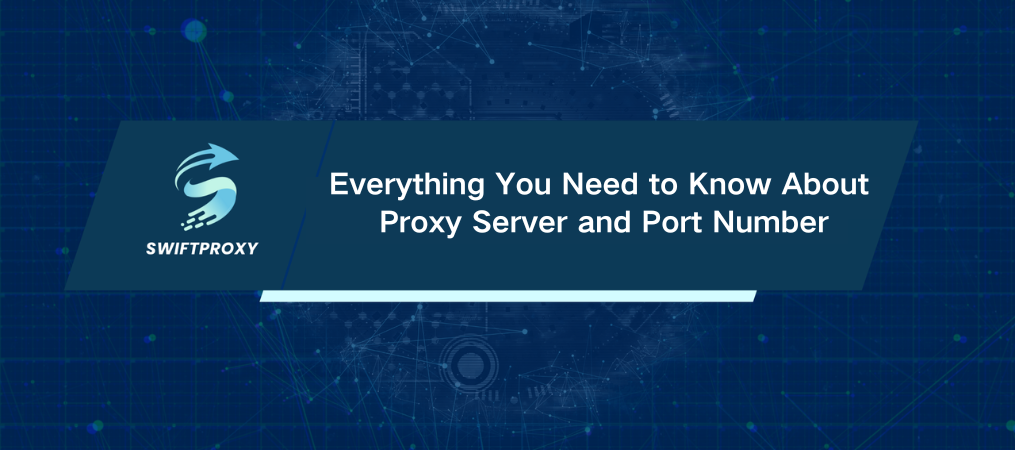Everything You Need to Know About Proxy Server and Port Number

In today's digital world, where online privacy and security are critical, understanding the technical details of how data flows through the internet is more important than ever. Two fundamental components that ensure this flow is both secure and efficient are the proxy server and port number. Let's break them down and explore why they matter for your network's functionality and security.
What is a Proxy Server?
A proxy server acts as an intermediary between your device and the internet. When you use a proxy, your data first passes through this server before reaching its destination. This provides an extra layer of protection by hiding your real IP address and encrypting your traffic, keeping your online activities private.
But how does it work exactly? When you set up a proxy, you'll need to configure both the proxy address and the proxy port number. These two elements play a pivotal role in making sure your connection is routed through the right server and the right service.
What is the Proxy Address?
The proxy address is the network address of the server you want to route your traffic through. It can either be an IP address or a domain name. When configuring a proxy, you’re essentially telling your browser or application which server to use. The proxy address is important because it directs the traffic to a specific point in the network.
Different types of proxy addresses serve different purposes. For example:
HTTP proxy: Used for web traffic.
SOCKS proxy: A more versatile proxy that supports different types of traffic.
HTTPS proxy: Specifically for secure, encrypted traffic.
What is the Proxy Port Number?
The proxy port number identifies the specific service running on the proxy server. It tells your network traffic which "door" to enter on the server. You can think of it as the number on an apartment door—each port number corresponds to a particular service or protocol.
Here are the most common proxy port numbers:
Port 80: For HTTP traffic.
Port 443: For HTTPS traffic.
Port 1080: For SOCKS traffic.
Choosing the correct port number is crucial to ensure your traffic is routed properly and that the connection is stable and secure.
The Importance of Proxy Server and Port Number
Now that you understand what the proxy server and port number are, let's dive into why they matter for your network security, performance, and overall experience.
1. Enhanced Privacy
By using a proxy server, your real IP address is hidden. This means your online identity is obscured, making it harder for others to track your activities. The proxy address ensures that your traffic is directed to the right server, protecting your privacy along the way.
2. Better Network Security
A proxy server acts as a middleman, filtering out potentially harmful traffic before it reaches your device. By carefully selecting the right proxy address and port number, you can enhance your network's security and reduce the chances of cyber threats.
3. Bypassing Geographic Restrictions
Certain websites or services limit access based on your location. Using a proxy server with an address located in a different region can help you bypass these restrictions, giving you access to content that might otherwise be blocked.
4. Improved Speed and Performance
Proximity to the proxy server matters. If you choose a proxy server located near your geographical region, your connection will be faster and more reliable. The right port number ensures that your traffic is routed efficiently, minimizing latency and optimizing performance.
In conclusion, the proxy server and port number are not just technical jargon—they are essential components for maintaining privacy, security, and performance online. By understanding how to configure them correctly, you can ensure a smoother, safer online experience while protecting your personal information.

















































